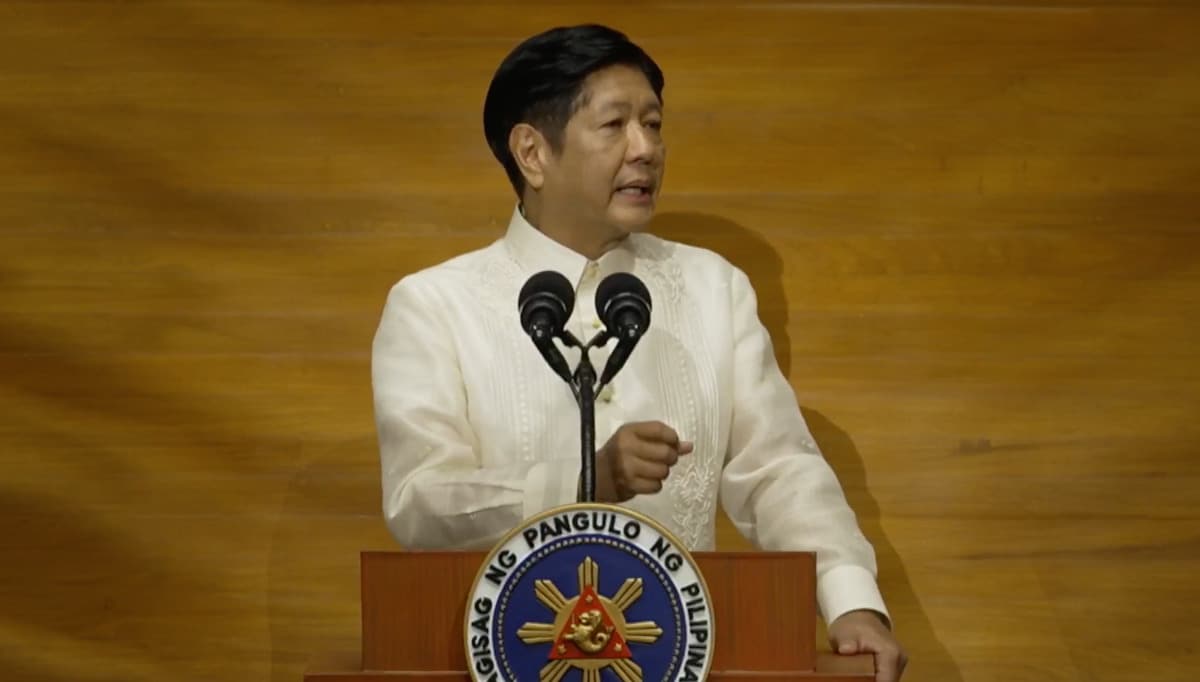
President Ferdinand Marcos Jr. during his third State of the Nation Address (Sona) at the Batasang Pambansa in Quezon City on July 22, 2024. —screenshot from RTVM/LIVE
MANILA, Philippines — Youth environmentalists on Wednesday challenged President Ferdinand Marcos Jr. to “practice what he preaches” by fulfilling his vows to power schools through solar energy and tackle climate change effects in the country.
Youth environmental organization SAVE Ph dared the President to do so, following his recent State of the Nation Address where he declared that solar electricity must become “standard features in our schools and in our classrooms.”
READ: 3rd Sona: Marcos vows more computers, solar power for education
“Enough of lip service. Solarizing our schools and shifting to renewable energy should be the administration’s top priority to ensure that our schools and communities are more resilient to the impacts of climate change,” SAVE Ph Lead Convenor Zyoen Garcia said in a statement.
Garcia also noted that the number of schools that were unable to open after the effects of Supertyphoon Carina demonstrate the “incoherence” of the government’s national policies.
“While we laud President Marcos’ recognition of the need to power our schools with renewable energy, he must practice what he preaches,” said Garcia.
READ: Philippines elected to host Loss and Damage Fund Board
Apart from powering schools through solar energy, the group also challenged Marcos’ role in the Loss and Damage Fund (LDF) Board, especially after the Philippines was elected as its host.
The LDF Board is a financing facility created under the auspices of the United Nations to help vulnerable countries cope with the increasingly costly and damaging impacts of climate disasters.
G7 should pay up for the climate crisis
“Beyond mere facilitation of the fund, as its chairperson, Marcos must take the lead in demanding the United States and the rest of the Group of seven countries to pay up for the climate crisis,” said Garcia.
The organization also reminded the public to be vigilant against corruption on the budget for schools’ energy transition, pointing out that the governments’ climate adaptation consistently received increased funding but remained inefficient.
According to SAVE Ph, the government continues to fall short in mitigating climate change due to its reliance on ”dirty energy” such as coal and liquefied natural gas.
It also stressed how solely focusing on evacuation plans and disaster risk management does not address the root causes of climate change and its broader effects.
“As a country hit by more than 20 typhoons per year, the government will do well by going beyond nearsighted disaster risk reduction management to build climate mitigation and adaptation strategies that guarantee resilient communities,” Garcia said.